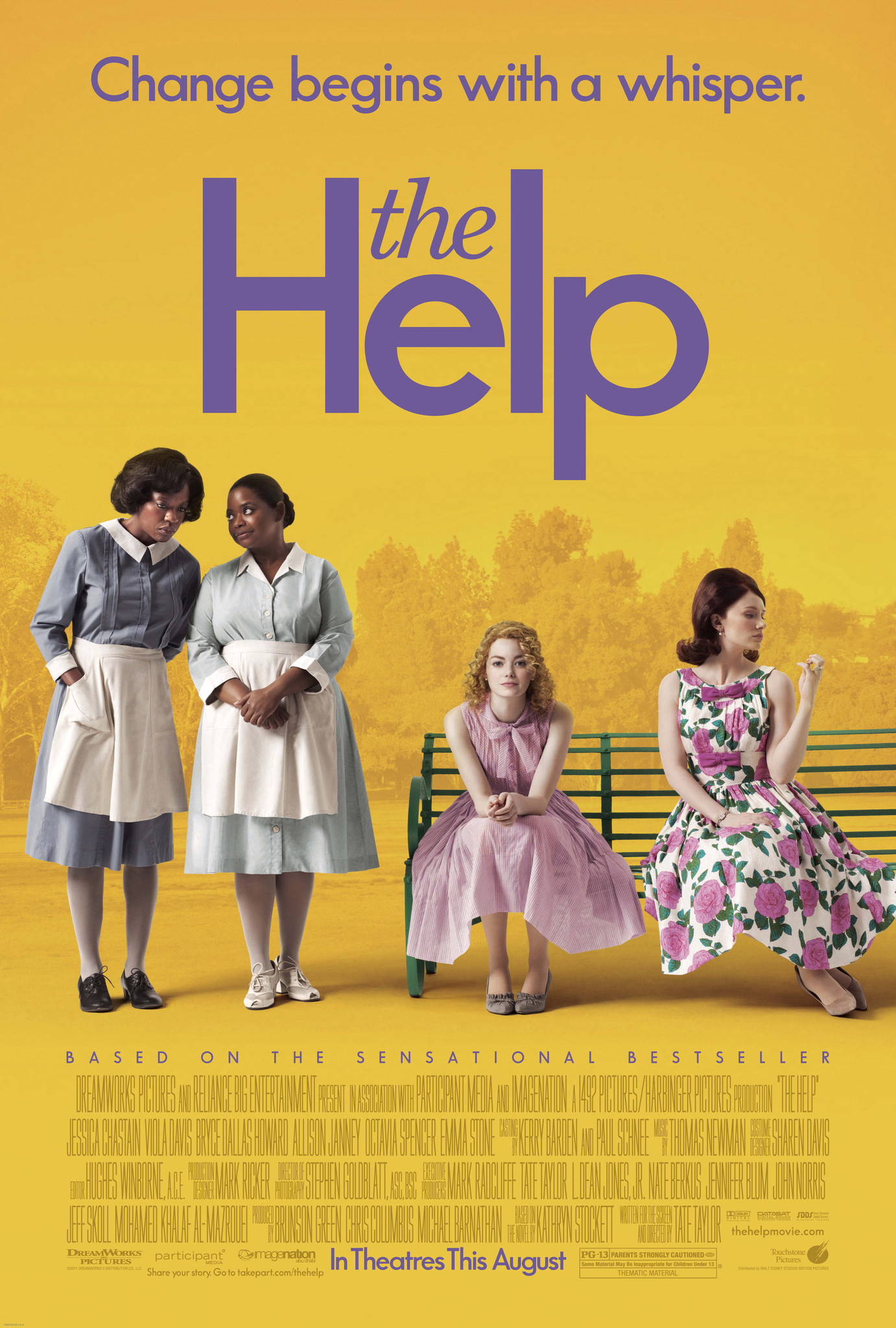Directed by: Tate Taylor

Race has always been a controversial and deeply divisive topic in the movies. Ever since Birth of a Nation commanded its huge silent screen following until last year’s movie of the popular Kathryn Stockett book, The Help, critics and audiences alike have debated the merits of black/white relationship films like The Defiant Ones or Driving Miss Daisy to “movement” films like Mississippi Burning and Hotel Rwanda. The Help, clearly situated in the former category, tells the story of a young aspiring journalist who wants to become known in the literary world and to do so conceives of a piece for a New York magazine on what it is like to be a maid in the deep South in the Sixties, told from the perspective of the maids themselves.
The controversy in the film arises mainly from two features of the movie: its portrayal of Mississippi in the 1960’s as a basically unfair, but benign, place for blacks and the fact that the story is told through a young white woman’s eyes. As A.O. Scott put it in an article on three controversial films released last summer (the other two were The Future and The Tree of Life), “many reviews of The Help took issue with its soft-focus view of Mississippi at the height of the civil rights movement, and also faulted the film for, once again, depicting the struggles of black people through the lens of a white protagonist’s experience” (“Summer Cinema Worth Debating,” New York Times, August 25, 2011).
As Scott points out, neither of these criticisms is fair to the movie. As to the first, large segments of Mississippi were violence free in the 1960’s; many people lived in the South with no direct experience of the Ku Klux Klan, just as many people lived in the violent New York City of the 1960’s without ever being mugged, beaten or murdered. This is not to say such violence did not exist and bring a pall of dread over everyone who lived there. It did, but the point is that fear and violence were not the only ways of coping during those troubled times. In fact The Help does incorporate that fear into its story and, additionally, refers to the racial violence happening at the time. It just does not dwell on either as its main theme. The racism that this movie chooses to deal with is more subtle and demonstrates its own deep portion of evil, an evil insidious and grotesque by any measure and not in any way condoned by the film. To write that The Help should have treated a subject other than the one its makers chose to treat is unfair as it is to any work of art. Judge a work by how well it does what it intends, not by what it doesn’t even attempt.
The second criticism is similar to the first, though it bears more weight. The story is what it is: the creation of a young, white woman from Mississippi. Kathryn Stockett cannot be blamed for not being black, though the criticism could be leveled that she cannot accurately know the thoughts and intents of a middle-aged, black woman like Aibileen, her main character because she is not one. But proof of that criticism still needs to be shown, and when middle-aged black women with deep roots in the South like Viola Davis, who plays Aibileen in the film and was nominated for an Oscar for her performance, are asked, they generally have agreed that Aibileen is a thoroughly believable character. Again: show where Stockett has erred, don’t just condemn her for her attempt at portraying a character other than herself. Does anyone criticize Flannery O’Connor for not being an evil, southern male and therefore deny her artistry in portraying one in her stories?
One last comment about the criticism of The Help. I wonder how much of it stems from the fact that the racism and illicit uses of power it portrays are vices that cut to almost every heart. Very few of us, even if we lived in the Sixties, would have ever burned a cross in a neighbor’s yard, much less murdered someone for any reason, let alone that of race. However, any viewer of The Help is likely to be guilty still of at least some of the subtle forms of racism in its story, and much more likely to have the herd instinct to join in the more overt forms displayed there. The Help speaks to many more people where they live today than Mississippi Burning ever did, and it does so with truthfulness and timeliness.
There is much more to be said about The Help as a film. Though almost all its characters are women, the story and themes are universal and beneficial for all to discuss. Technically, The Help is excellent, with sure-handed direction by first-timer Tate Taylor and stellar performances (three Academy Award nominations for acting!) by all its cast. The Help was nominated for Best Picture at the Academy Awards this year and is accessible to all ages and tastes. Its characters and story should create a healthy discussion about everything from social mores to racial attitudes to the place of faith in a suffering person’s life.
Drew Trotter